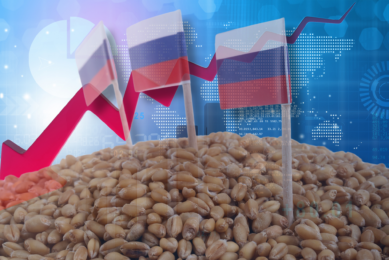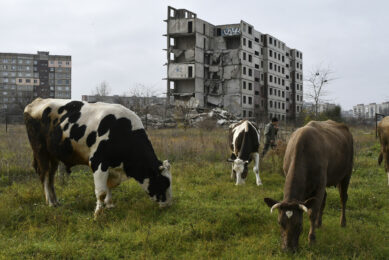Belarus agriculture is in turmoil due to the Ukraine war

Belarus may experience a drastic drop in demand of feed in the coming few months, a research conducted by Belarusian publication Office Life showed.
This is due to Western sanctions imposed on the country over aiding the Russian invasion of Ukraine, which are disrupting feedstuff imports and could undermine agricultural export.
Lack of protein
Belarus used to import feed protein from Ukraine, but now these supplies have stopped. The rise in the price of feed in Belarus is inevitable, but it will not cause a shortage on the domestic livestock market, commented Alla Lomakina, deputy Agricultural Minister.
“We are building up logistics with Russia, and feed is already being delivered. We anticipate a shortage neither in poultry nor in the pork industry. A full reorientation of protein raw materials supplies is taking place. Thus, we see no problems,” Lomakina said.
Producers less optimistic
However, some farmers do not share the optimism of the government officials. Mikhail Shrub, a local farmer said there is a shortage of soybean meal on the Belarusian market, as deliveries from Ukraine stopped due to fights, and supplies from Europe are paused by financial restrictions.
To some extent, the shortage is linked with the drought that hit farmers in 2021, said Vasily Fedorov, deputy chairman of the dairy farm Olgovskoe. There is a lack of high-protein feed, which was primarily imported from the south and Europe, Fedorov added.
Concerns over 2022 harvest
In 2022, the price of meat and dairy products on the Belarusian market could double, Demiko Narashvili, head of Zvon-Gora farm said, citing problems with feed supply.
Belarussian farmers depend on the plant protection tools imported from Europe, which was put on halt. There are similar problems with seeds, Narashvili added.
Export is in jeopardy
Unprecedented Western sanctions imposed on Belarus could hamper the country’s livestock export, Dmitry Crook, senior analyst of the local consultancy BEROC said, adding that Belarussian farmers could lose up to 40% of exports due to the current crisis.
For instance, in 2021 Belarus exported meat and meat by-products for $960 million, 18% up compared with the previous year. Belarus exports around a quarter of manufactured meat, and almost 70% of dairy products.
As explained by Crook, to some extent, these supplies could be redirected to the domestic market.
However, the foreign currency is required to maintain the industry’s sustainable operation as well as to purchase imported feed and other stuff, Crook said.
“A complicated period of finding a balance of demands and interests lie ahead,” Crook said.











